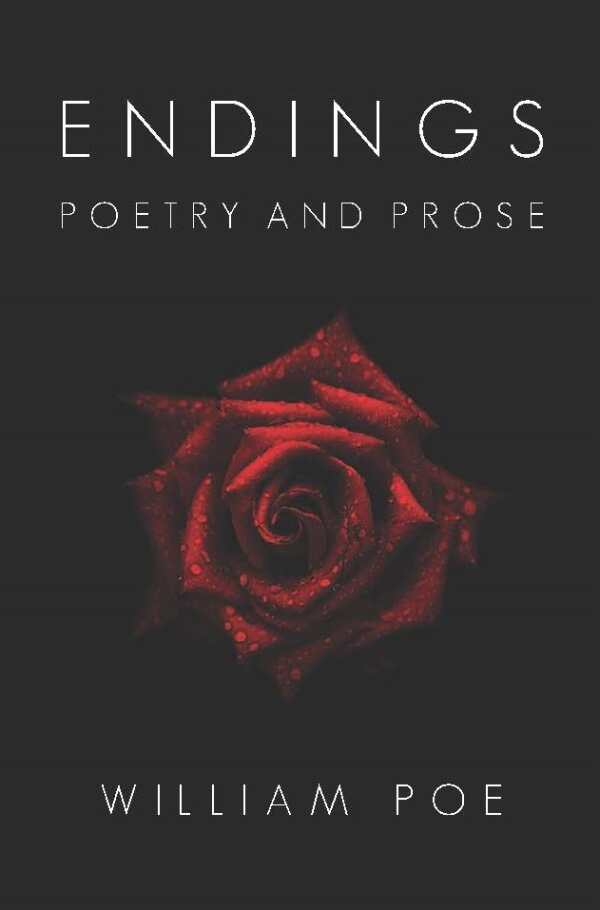Endings
Poetry and Prose
William Poe presents an entertaining and often philosophical take on ultimate finality through poems and stories that are both rich and varied.
In his collection of poems and prose, Endings, William Poe, author of the award-winning novels Simon Says and Simple Simon and the poetry collection Myths and Rhymes, muses on finality in all of its forms.
At first glance, Endings might seem to have borrowed its dark tone from the oeuvre of Edgar Allan Poe. William Poe’s richly detailed, modern characters do stumble through life, watching their dreams end without mercy. Still, Poe relates his tales without malice or vengeance.
Poe’s commitment to reality is refreshing. His characters are tragically noble: an artist who devises a shocking way to make his work seen—and fails; a woman trapped in a small town and a smaller life; a man seeking to escape his New Orleans roots, only to be dragged back by family circumstances.
Endings consists of six short stories and thirty-four poems, divided into sections titled “Art,” “Death,” “Relationship,” “Being,” and “Reflection.” Poe’s artistic skill is more apparent in his short stories than in his poems, some of which fall flat. Even on the poetry side, however, there are plenty of deeply affecting verses to be found, such as in “Not Sylvia Plath,” where Poe addresses the personal, hard-won nature of his literary voice:
No one taught me to write or read or holler
out from the depths of my despair.
One day I awoke, and the screams were there,
adolescent, perhaps, but just as painful as
a pampered poem.
Poe’s voice is both mature and unique. He draws convincing details from his past studies in art and anthropology, and his characters brim with authenticity. His poems take on a more personal tone than his stories, with Poe musing on a variety of subjects, including his tangled relationship with religion and identity. In “Resurrection,” he illuminatingly writes:
Those words took form in the ephemeral breath of friends
That sent them, virtually said, through the air into my head:
There is resurrection from the dead.
It’s often difficult to develop a satisfactory flow in a book that switches back and forth between prose and poetry, but Poe does an admirable job, with some poems reflecting directly on subjects and characters introduced in the stories preceding them.
Poe’s writing is propulsive and rich in imagery. The book’s only technical shortcoming, aside from a few minor misspellings, is the absence of a table of contents, a potential inconvenience for those who want to quickly return to a favorite story or poem.
Endings may lack happy endings, but its contents are entertaining and potentially instructive, allowing others to contemplate how they might handle their own inevitable conclusions.
Reviewed by
Peter Dabbene
Disclosure: This article is not an endorsement, but a review. The publisher of this book provided free copies of the book and paid a small fee to have their book reviewed by a professional reviewer. Foreword Reviews and Clarion Reviews make no guarantee that the publisher will receive a positive review. Foreword Magazine, Inc. is disclosing this in accordance with the Federal Trade Commission’s 16 CFR, Part 255.

